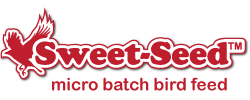How Long Will My Hummingbird Nectar Last?

When you're refilling hummingbird feeders frequently throughout the summer, it can seem like it would be much easier to make larger quantities of nectar all at once, but is that dangerous to hummingbirds? How long will it be before nectar goes bad?
Larger Feeders Are Larger Risks
As backyard birders get more and more hummingbirds visiting their yard, they often switch to larger nectar feeders with bigger reservoirs. This allows for less frequent feeder refills because more nectar is put into each feeder at once, and while it is more convenient for birders, it can be more hazardous to hummingbirds if the nectar is not consumed quickly.
Many backyard birders don't realize that hummingbird nectar will begin to ferment as soon as it is mixed and becomes contaminated. That contamination may come from the smallest fleck of bacteria or fungus in the feeder's reservoir or feeding ports, on a spoon used to stir the nectar or from the bill of a sipping hummingbird. In fact, as soon as one hummingbird takes a sip from the cleanest, freshest nectar feeder, that nectar is contaminated and begins to spoil.
Fortunately, fermentation proceeds very slowly at first, and even though the nectar has been contaminated, it is still perfectly fine for hummingbirds to drink. The more hummingbirds that sip at the nectar, however, the more contaminants there will be introduced to the solution. At the same time, even more nectar will be consumed by the greater numbers of birds, so the spoilage is still kept minimal because the nectar can be drunk quickly, before the fermentation reaches dangerous levels.
It is when large nectar feeders are visited by only one or two hummingbirds that severe problems can arise. In these cases, the nectar still becomes contaminated by the birds, but the fermentation can spread more quickly than the nectar can be drunk. Gradually, the nectar will turn cloudy or show dark spots or milky swirls, and there may be a sour odor around the feeder. Insects and pests are more easily attracted to a fermenting feeder, and as the nectar spoils, it can thicken and crystallize, clogging feeding ports.
Exactly how long nectar can last once it is in a feeder will vary depending on the size of the feeder, the number of birds that visit and the local climate. If a feeder is very busy and visited by dozens of hummingbirds, it is unlikely that the nectar will get dangerously fermented before a refill is required. In less busy areas, however, nectar should be changed every 5-7 days, even if it shows no immediate signs of fermenting or spoilage. During the hottest summer days, nectar will not last more than 2-3 days before it can be dangerous to hummingbirds. Using smaller feeders with frequent refills and cleanings is the best way to be sure no hummingbirds are at risk from spoiled nectar.
Storing Excess Nectar
Instead of using larger feeders and taking the risk of having nectar ferment before it can be drunk, many backyard birders will mix up larger quantities of nectar and store it in their fridge until they need it to refill their feeders. This can keep nectar fresh and suitable for almost twice as long – stored in the fridge, nectar can last 10-14 days, but should still be carefully checked for any signs of contamination before it is used. Freezing nectar can help it last even longer, up to 30 days, but it must be fully thawed and liquid before being added to any feeders.
Keeping Nectar Fresh
There are several ways to keep hummingbird nectar fresh as long as possible…
- Thoroughly wash and sterilize feeders with every refill to prevent any cross-contamination, and be sure to clean out the nooks and crannies of feeding ports or insect guards.
- Opt for smaller feeders that birds can empty out quickly before fermentation accelerates, but do not neglect cleaning these feeders every time as well.
- Store extra nectar in the coldest part of the fridge, on a low shelf at the back. Clearly mark the container as hummingbird nectar – not for humans – to prevent any mixups!
- Hang hummingbird feeders where they will be shaded during the hottest afternoon sun so the nectar will not ferment as quickly.
Hummingbird nectar will always go bad, but by understanding what makes nectar spoil, you can easily take steps to make it last as long as possible so hungry hummingbirds don't have to go far for their next sweet sip.
Image by rachaeljklol from Pixabay
